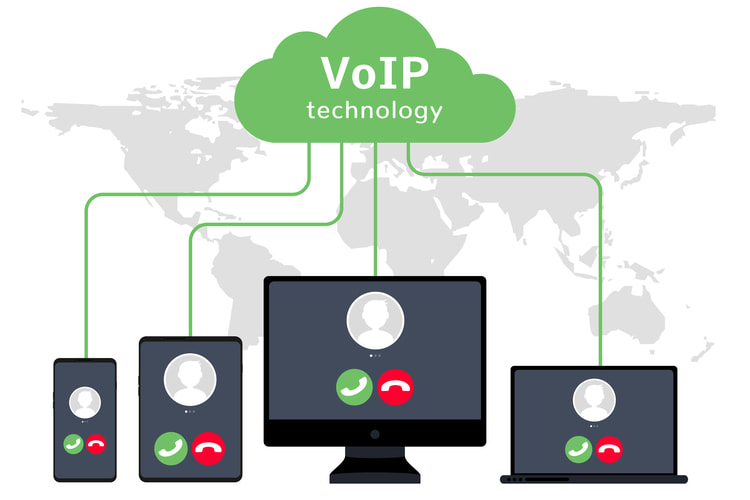Using VoIP to Work Remotely
Working from home can be a challenge… a challenge that millions of Americans have had forced onto their laps in recent weeks. In the blink of an eye, many went from a quiet office space to a house filled with children home from school, a spouse also working from home, and none of the amenities that they were used to. Millions of people have had to figure out how to work from home, while maintaining the same level of productivity they had while in office. One simple solution many are turning to is Voice over Internet Protocol or VoIP. VoIP makes crystal clear voice or video calls for about the same price as sending an email.

Enter VoIP (Voice over Internet Protocol)
Within the context of how you’ll utilize it in your home, Voice over Internet Protocol (VoIP) is simply telephone service delivered via the internet. Already implemented widely in businesses across the globe, setting up VoIP in your home most likely will require less time and effort than dealing with the phone company for standard phone service.
While you do need an internet connection, you likely already have one in your home. From there, most VoIP carriers provide free or very low-cost calling. Not only can you make local calls, but you can dial internationally for free or a nominal charge. From this page, you can learn about VoIP providers and compare free plans to packages that include options such as unlimited and international calling.
How Can VoIP Help Me Work from Home?
VoIP has changed the way that we can conduct business. Despite being physically distanced, we’re more connected than ever before. A favorite VoIP feature among customers is the ability to work remotely from home, but maintain the same phone functionality as they would have at their office. With VoIP service, you can actually bring home your IP phone from your office and work remotely. When you bring your IP phone to a new location:
- You will keep the same number.
- It will function as if it is at your office location.
- You’ll be able to page coworkers, dial extensions, transfer calls, and receive calls –all using your business telephone number.
VoIP Considerations
A few things to keep in mind as you evaluate making the switch to VoIP service.
First off, you do need electricity to power VoIP given that your internet powers VoIP. Therefore, if you experience a power outage, you’ll lose that telephone service whereas you could have access to landline calling without power. That said, if you own a cell phone -- even as an emergency backup -- keep it charged to 100% ensuring you’re good to go the next time you experience a blackout.
Second, there’s uncertainty around how your VoIP provider will route 911 emergency calls. There’s a chance a 911 call will go somewhere other than your local 911 dispatcher. You can do things to make sure your 911 calls go to the right place. The Federal Communications Commission (FCC) suggests providing your physical address to your VoIP provider to increase the chance of properly routing your calls. But, bottom line, if you call 911 via a VoIP setup, be clear about where you are and what you need so that the person on the other end of the line can quickly and efficiently route your call.
Third, while VoIP tends to produce crystal clear connections and call quality, it ultimately depends largely on the quality of your internet connection. If your internet speed lags, VoIP calls could suffer. However, with a reliable and strong internet connection VoIP call quality can supercede landline and mobile phone conditions.
Most of all, do your homework. Review offers from this page that allow you to compare service. If you only call inside North America, you’ll go for a different plan than someone with relatives abroad would opt for. That’s the beauty of VoIP service through most carriers; you can customize it to meet your situation’s needs.

